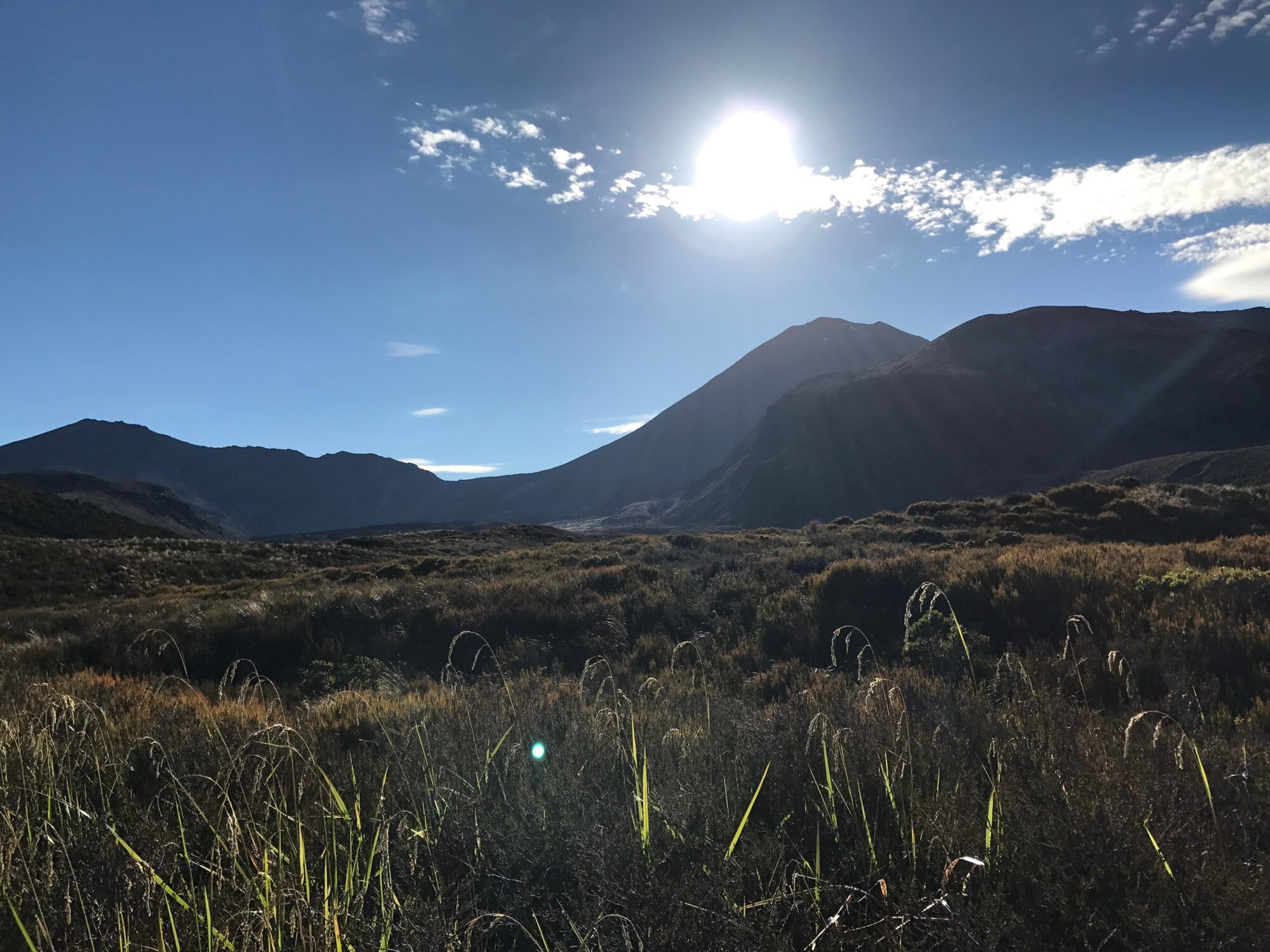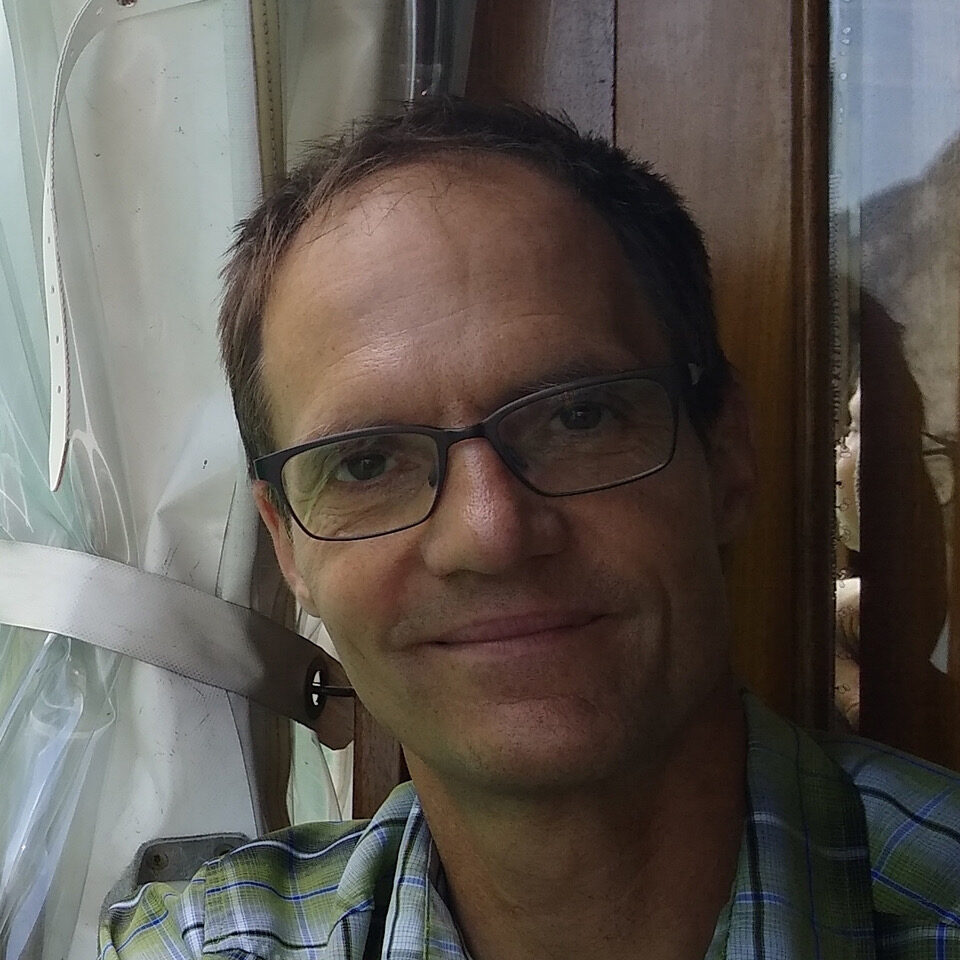
Tobias Fischer
Tobias Fischer is the CONVERSE Catalyst Center PI and a volcano scientist in the Department of Earth and Planetary Sciences at the University of New Mexico. His expertise is in the geochemistry of volcanic and hydrothermal gas emissions. He directs a lab at UNM for the chemical analyses of gases. His group also develops new techniques for measuring and sampling volcanic gases during eruption utilizing ground-based remote sensing and drone-based approaches. Most recently he has worked on sampling and measuring plume gases during the eruption of Tajongaite, La Palma Island.
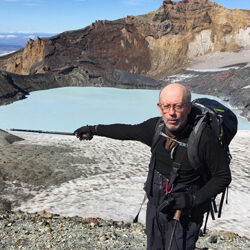
Bruce Houghton
Bruce Houghton is the CONVERSE Co-PI and the Gordon A. Macdonald Professor of Volcanology, Hawaiian State Volcanologist and Science Director for the National Disaster Preparedness Training Center at UH-Manoa. In 2017, he won the highest accolade from the International Association of Volcanology and Chemistry of the Earth’s Interior, the Thorarinsson Medal. His research specialty is the dynamics of explosive eruptions, particularly at Kīlauea and Stromboli volcanoes. He also works across the interface between volcanoes and society, in collaboration with leading disaster psychologists, sociologists and planners.
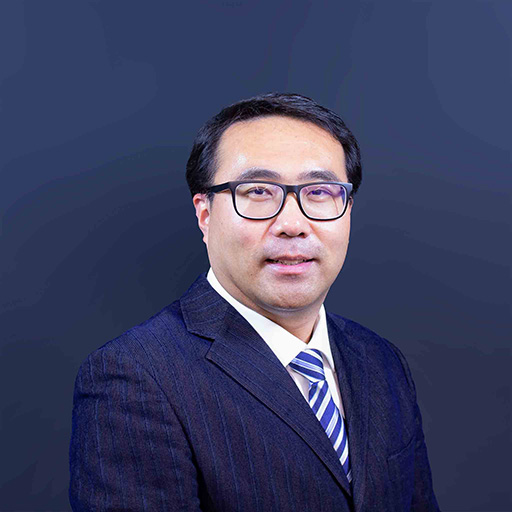
Su Zhang
Dr. Su Zhang is the Associate Director of the Earth Data Analysis Center (EDAC) at the University of New Mexico (UNM). Dr. Zhang also serves as an Assistant Professor with affiliations in the Department of Geography and Environmental Studies and holds the title of Research Professor in the Department of Civil, Construction, and Environmental Engineering at UNM. Dr. Zhang obtained his Ph.D. in Civil Engineering from UNM in 2017. He also received Master’s Degrees in GIScience and Construction Management from UNM in 2016 and 2010, respectively. Dr. Zhang defines his professional identity as a geospatial engineer and data scientist, with a specific focus on leveraging geospatial and information technologies to address real-world challenges in the domains of infrastructure and environment. His current research endeavors revolve around the application of remote sensing, Geographic Information Systems (GIS), web mapping, and uninhabited aircraft systems (UAS) technologies for infrastructure and environmental management. Dr. Zhang has been at the forefront of both methodological and applied research within the geospatial engineering field for over a decade. Dr. Zhang has been engaged by many federal and state agencies, as well as private firms, to take on the role of Principal Investigator (PI) in the design and evaluation of GIS-based spatial decision support systems.
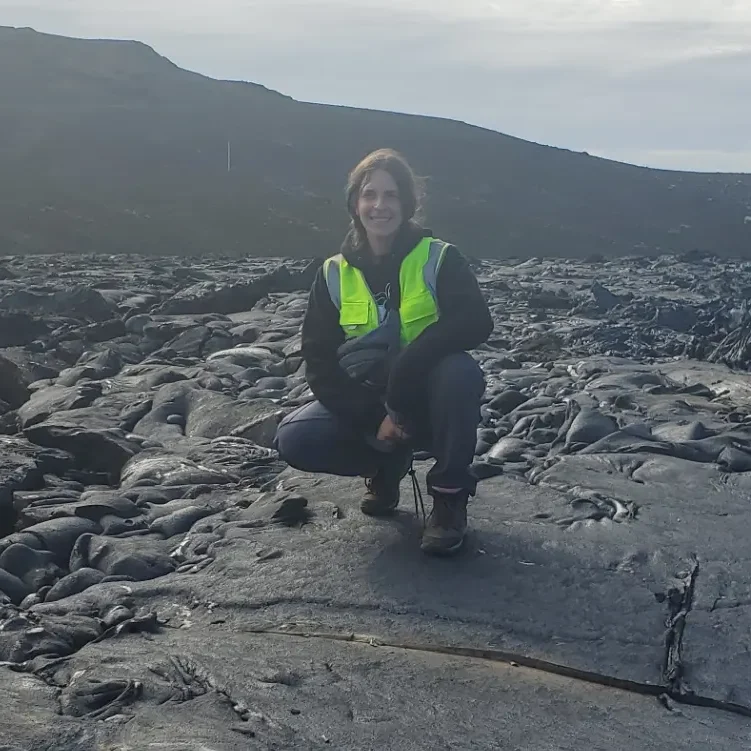
Samantha Wolf
Samantha Wolf, MSc. is the CONVERSE Program Assistant Manager. Her expertise is in gas flux instrumentation and quantifying hydrothermal carbon dioxide and water using field-based and thermophysical modeling of fluid-rock interaction. Samantha has worked primarily in Enhanced Geothermal Systems (EGSs) and uses methods widely applicable to volcanology and understanding the surficial and at-depth geochemical activity.

Karl Kim
Karl Kim is Professor of Urban and Regional Planning at the University of Hawaii, where he directs the Disaster Management and Humanitarian Assistance certificate program. He is Executive Director of the National Disaster Preparedness Training Center (ndptc.hawaii.edu), a congressionally-authorized member of the National Domestic Preparedness Consortium which develops and delivers FEMA-certified training for first responders and emergency managers across the nation. Kim is Editor-in-chief of Transportation Research Interdisciplinary Perspectives (Elsevier) and is editing a 10-volume series on disaster risk reduction and resilience (Routledge). He has led research and training programs throughout the world on hazards, risk management, transportation and urban planning.
ORCID: 0000-0003-0528-8747.

Kari M. Cooper
Kari Cooper is a geochemist and Professor in the Department of Earth and Planetary Sciences at University of California Davis. Her research focuses on understanding the time scales and nature of processes operating within magma reservoirs beneath volcanoes. Over the course of her career she has worked on volcanic systems ranging from Hawaii and Icleand to volcanoes of the Cascades and South American arc, to silicic systems such as Yellowstone and the Taupō Volcanic zone, New Zealand. Her recent work has focused on the on using trace-element and isotopic signatures of volcanic crystals to reconstruct the time scales and thermal conditions of storage in shallow crustal reservoirs, and the diversity and number of magma bodies present within a reservoir at any given time. She has contributed to community efforts in volcano science, including serving on the National Academies committee that produced the ERUPT report, and serving in different roles within CONVERSE including disciplinary leader for petrology/geochemistry, Chair of the Hawaii Scientific Advisory Committee (SAC), and currently the CONVERSE lead for develoing and coordinating SACs with interested USGS observatories.
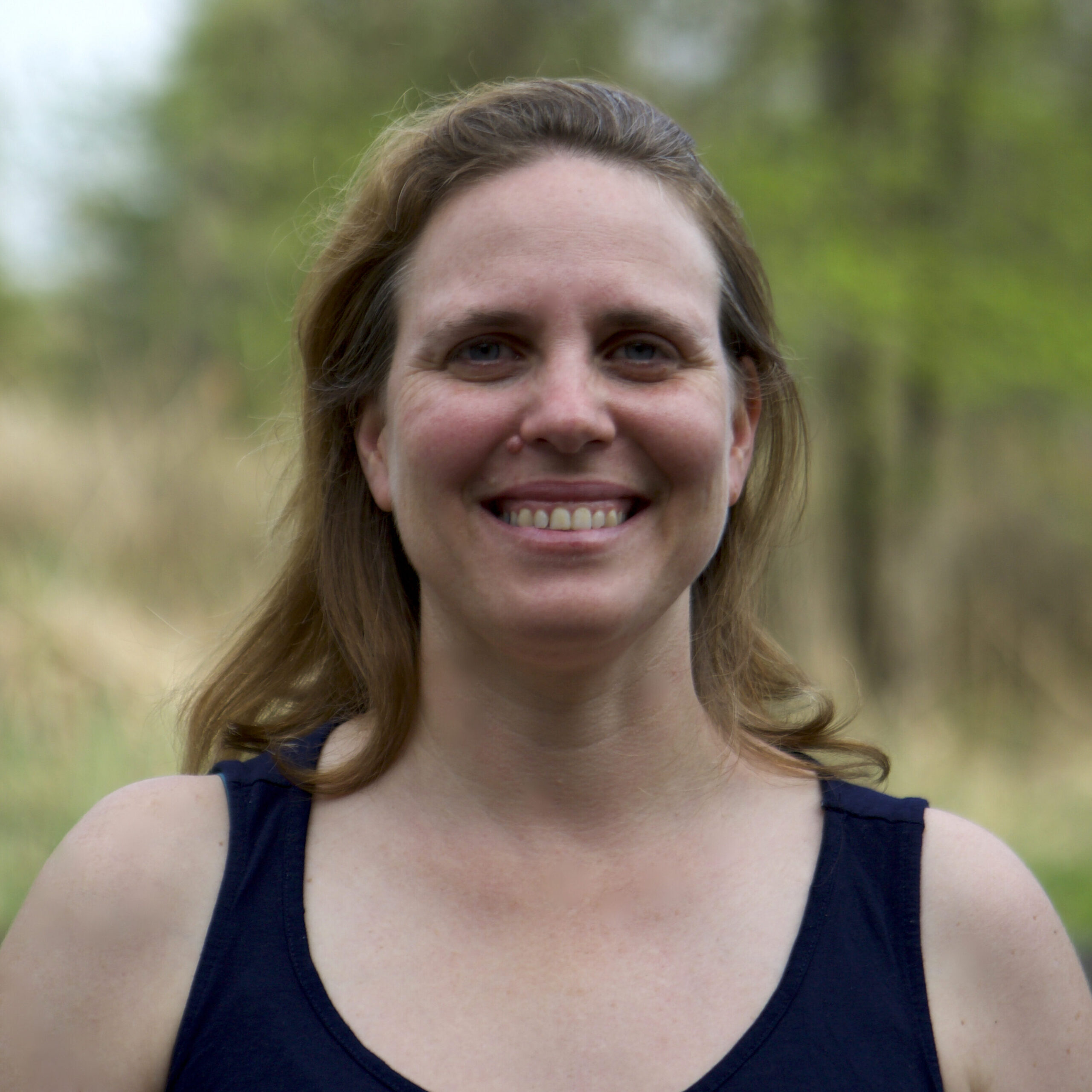
Einat Lev
Dr. Einat Lev is an Associate Research Professor at Lamont-Doherty Earth Observatory, part of Columbia University. She holds a Ph.D. in geophysics from MIT. Her research focuses on fluid mechanics involved in volcanic eruptions and their products, particularly lava flows. Dr. Lev utilizes a wide range of techniques to study these processes, from numerical models to scaled laboratory experiments using a variety of materials. She deployed instruments and collected field data at many active volcanoes worldwide, including during eruptions in Hawai’i, Iceland, and Spain. Her research is funded by the National Science Foundation, NASA, and the Gordon and Betty Moore Foundation. Active projects include studies of geyser dynamics, the behavior of multi-phase suspensions such as magmas and lavas, 3D imaging of analog experiments using MRI, and benchmarking of volcanic flow codes. She is also leading the development of a new cloud-based cyber-infrastructure for volcanology.
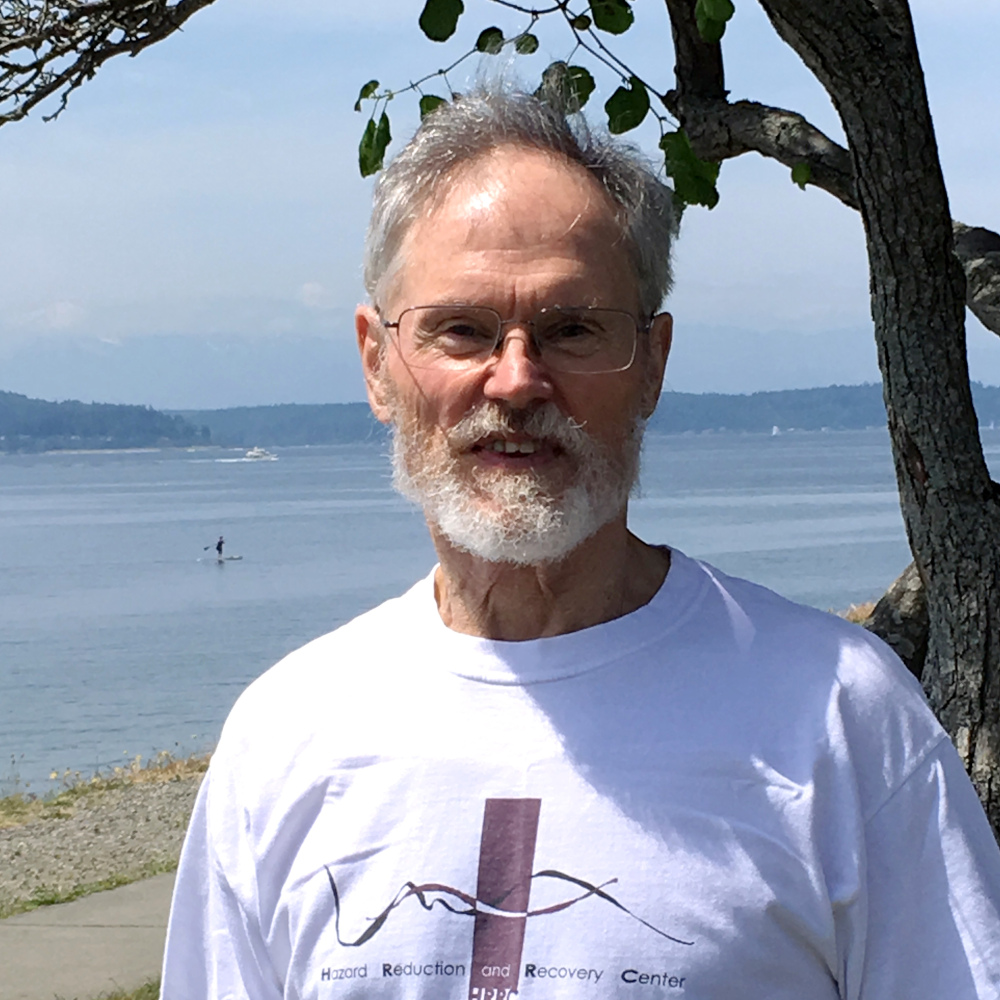
Michael K. Lindell
Dr. Michael K. Lindell is an Emeritus Professor at Texas A&M University and an Affiliate Professor at the University of Washington Department of Urban Design and Planning, Boise State University Department of Geosciences, and Oregon State University School of Civil and Construction Engineering. With over 50 years of experience in emergency management, he has conducted extensive research on various hazards, including nuclear and chemical threats, floods, volcanic eruptions, earthquakes, hurricanes, tsunamis, tornadoes, and wildfires. Dr. Lindell has conducted volcano research at several locations such as Mt. St. Helens, Mt. Shasta, Mt. Rainier, Kilauea, Long Valley Caldera, and Mt. Merapi. He has worked with numerous public and private organizations, providing research and technical services, and has been involved in over 60 contracts or grants, a significant portion of which were funded by the National Science Foundation. His expertise extends to evaluating emergency plans, exercises, and response facility design for the US Nuclear Regulatory Commission and providing assistance to the Texas Governor’s Division of Emergency Management in hurricane-related projects. He has also served as a consultant to the International Atomic Energy Agency, the federal Advisory Committee on Earthquake Hazards Reduction, and various other advisory groups and panels. Dr. Lindell has made numerous presentations at scientific meetings, conducted short courses for emergency planners, and participated in workshops on risk communication and emergency management worldwide. He is a prolific author, having written 11 books, 85 technical reports, 200 journal articles, and book chapters on the subject of emergency management.

Michael Manga
Michael Manga is a physical earth scientist, and his current research interests include human-induced earthquakes, the behavior of geysers, water on Mars, and volcano science.
Michael received his B.S. in geophysics from McGill University in 1990, his M.S. in engineering sciences from Harvard University in 1992, and his Ph.D in Earth and Planetary Science also from Harvard University in 1994.

Yolanda Lin
Yolanda Lin develops computational tools and methods in disaster risk analysis for identifying, analyzing, and communicating extreme events. In particular, Yolanda is interested in low-probability, high-impact, data-sparse events at the intersection of natural hazards, the built environment, and society. She focus on the nonlinear impacts in disasters that can have significant implications for our understanding of past, current, and future risk at the city and regional scales. Yolanda uses both probabilistic and event-based approaches to study risk through multiple lenses, including engineering, hazard science, and social science. This work contributes towards disaster preparedness and mitigation, ultimately as a way to build more resilient communities.

Matthew Fricke
Matthew Fricke studies distributed complex systems including supercomputing, machine learning, swarm robotics, and biological systems. His computational biology research focuses on the efficiency of search processes such as ant foraging and immune system activation. Swarm robotics work is on search strategies for resource collection in support of solar system exploration and volcano surveys. Recently he has applied machine learning to modeling climate change and to biosignature detection.Matthew received holds a BA in Anthropology from Appalachian State University and BS in Math from the University of New Mexico, and and MS and a Ph.D. in Computer Science from the University of New Mexico.
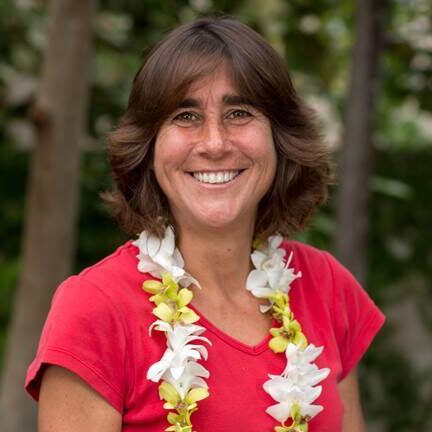
Barbara Bruno
Dr. Barbara Bruno is on the faculty of the Hawai‘i Institute of Geophysics and Planetology at the University of Hawai‘i at Mānoa. She holds Bachelor degrees in Mathematics and Geological Sciences and Master and Doctoral degrees in Geology and Geophysics. Her broad and diverse career includes mathematical research and development in the private sector, planetary geology and volcanology research, undergraduate teaching in geology and physics, community outreach, and facilitating professional development opportunities for students and faculty. One of her key goals is to level the academic playing field in the geosciences, so that everyone can thrive. This ties in nicely with CONVERSE’s focus on equity.
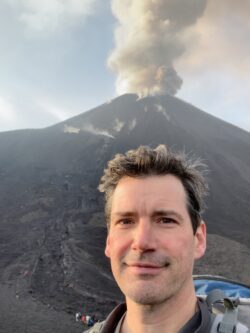
Greg Waite
Greg Waite is a Professor in the Department of Geological and Mining Engineering and Sciences at Michigan Technological University. He earned a bachelor’s degree in mathematics from St. Norbert College, and M.S. and Ph.D. degrees in Geophysics from the University of Utah. Greg’s research centers on shallow seismicity in volcanic systems with an aim of understanding crustal kinematics and fluid movement. Much of this work involves temporary deployments of seismic, infrasound, and complementary instrumentation on open-vent volcanoes in the Americas to capture eruption signals. He also models volcanic phenomena in the lab using scaled analog experiments.
